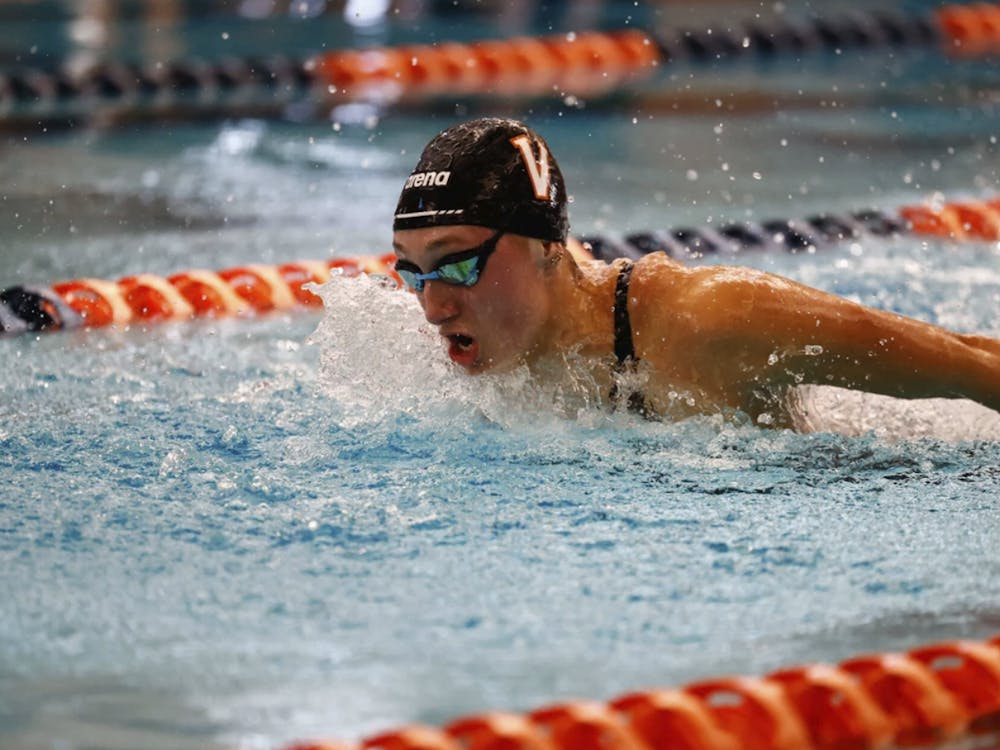With any team that enjoys a successful regular season record coupled with several postseason victories, falling just short in the end leaves players and fans alike with a bittersweet taste. Virginia fans are all too familiar with this feeling.
Over the course of the Virginia men's soccer season, high highs proved that the team was strong offensively and defensively, able to come through in high-pressure situations, and had the young talent that could return the program to national prominence over the next few years. However, low lows exposed vulnerabilities like wavering intensity, inexperience and the inability to finish opportunities.
After Saturday night's NCAA quarterfinal loss to Duke, the question remains: What is the missing link? What takes this team from Klöckner to the College Cup?
An important answer may be one more year. While the Cavalier defense this season was ripe with leaders such as seniors Matt Oliver and Jon Hartman, players Virginia will be hard-pressed to replace, the offense is extremely young. With the notable exceptions of seniors Mike Littlefield and Zane Hill, both the offense and midfield positions for Virginia are filled with sophomores and freshmen.
This solution is especially viable given the changes coach George Gelnovatch and his staff were able to make between the 2003 and 2004 seasons.
"Each year I played here we got a step further," team captain Oliver said.
Last year the extremely young team struggled to an 11-10-2 record but showed what it could be by taking the ACC championship.
This year, as a talented sophomore class was augmented by a group of recruits that rivaled its skill and speed, Gelnovatch was able to produce a group that earned an 18-5-1 record, defended Virginia's ACC championship title and made it to the NCAA quarterfinals for the first time in four years.
"I felt like this team had a good chance to [make it to the College Cup], and I feel like next year's team will have the same chance," Gelnovatch said.
Despite overall success, the Blue Devils exposed the team's weaknesses and inexperience. The young offense was unable to capitalize on numerous opportunities in front of the goal and was tangibly demoralized by Duke's early lead.
"I wouldn't change our preparation [or] anything that we did," Gelnovatch said. "But I told those returning next year, when games get to this point, it's a matter of concentrating and making plays particularly on restarts and not playing off your back."
Both Duke and Virginia created chances to score, but the Blue Devils capitalized where the Cavaliers failed.
Rarely this season have restarts been a problem for Virginia. Junior Hunter Freeman racked up a record 21 assists, many off restarts, and his team was comfortable finishing his serves. But in the high-pressure situation of the NCCA quarterfinals, especially after the Cavaliers fell behind, youthful nervousness was undoubtedly a factor in the team's inability to finish balls they had knocked in many times before.
"A few times we were two inches in front of the ball too early or two inches behind too late," Freeman said. "I thought we had a lot of good chances on restarts, but for one reason or another we just weren't clicking like we usually do."
While young talent guarantees growth and improvement in the future, rarely do young teams have unbridled success early without a few heartbreaks.
For the Cavaliers, this particular heartbreak may translate into victory in just a matter of time.





